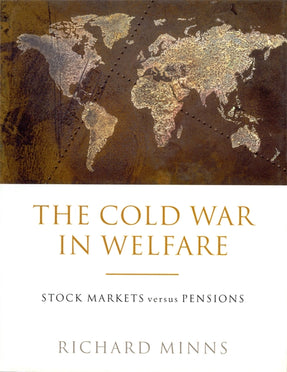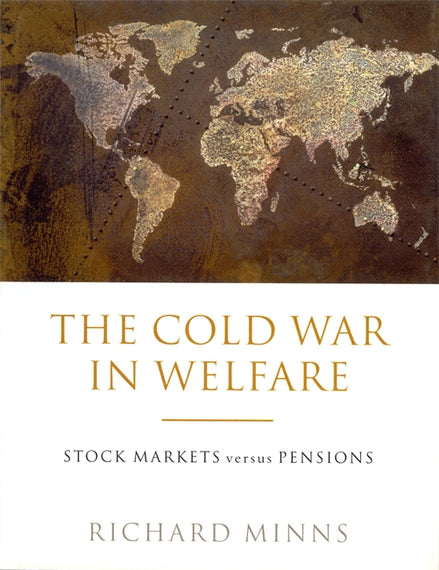
The Cold War in Welfare:Stock Markets Versus Pensions
Minns describes, analyses and destroys arguments for privatisation and the dismantling of the Welfare State
A new Cold War has developed between competing blocs of countries over the role of financial markets versus the state in the provision of pensions and the financing of the economy generally.
An Anglo-American bloc, which has spread into South America, Australia, Canada and Japan, favors private pension investment on stock markets. Proponents of this approach argue that it will be much more efficient and provide capital for corporate growth. A European bloc, which covers most European countries other than the UK, favours state provision and a much smaller role for stock markets in pensions’ provision and in corporate relations with the financial sector. This model is, unsurprisingly, under threat from the World Bank, financial markets, and many senior academics in the US and Britain.
This book is the first to analyse comprehensively this situation. It argues that social provision and corporate relationships with the financial sector are inextricably linked, and moreover that the expansion of private pensions through stock markets has all the attendant consequences for the control of companies by investors on those markets who want to maximize individual financial returns as opposed to corporate growth. Indeed, the book comes to the conclusion that many of the arguments used in support of the Anglo-American approach are based not on improving pensions and economic growth but rather on how to promote stock markets themselves, a decidedly different matter.
Reviews
This is a very important—and timely—book which is directly relevant to the policies of the present government. The arguments for privatisation which Richard Minns describes, analyses and destroys are arguments for the progressive dismantling of the Welfare State and its replacement by market forces. He calls it a Cold War in welfare and so it is—being skillfully promoted by bankers and city merchants, supported in the media and now accepted by most political leaders—in the name of modernisation.
If we are to defeat this dangerous campaign we shall need to be well informed about what is happening and why—and this book gives us all we need to know.
